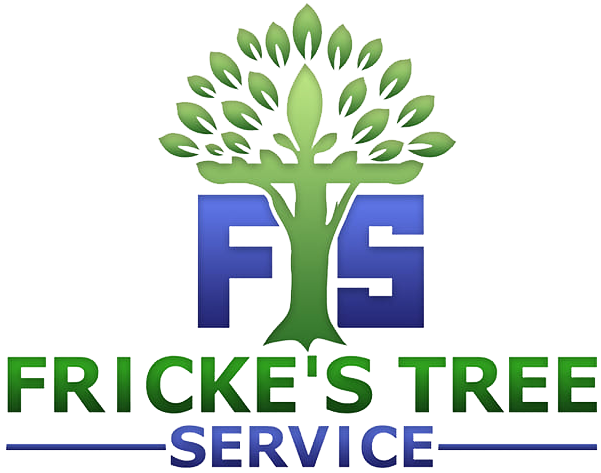Fricke's Tree Service
Tips for Maintaining Healthy Trees After Trimming
Maintaining healthy trees after trimming is essential for their longevity and overall health. Proper care and attention can help your trees recover from the stress of trimming and promote new growth. In this post, we will explore effective tips and strategies to ensure your trees thrive after a trim, keeping them strong and vibrant for years to come.
Understanding the Importance of Tree Trimming
Tree trimming is a crucial part of tree care. It helps to:- Remove dead or diseased branches, which can harbor pests and diseases that threaten the tree's health.
- Improve air circulation and sunlight penetration, allowing the tree to photosynthesize more effectively.
- Enhance the tree's shape and structure, promoting a more aesthetically pleasing appearance.
- Promote healthy growth by encouraging the development of new shoots and leaves.
Tips for Post-Trimming Tree Care
Here are some effective tips to maintain healthy trees after trimming:1. Watering
Proper watering is crucial for tree recovery. After trimming, trees may need extra moisture to help them heal. Here’s how to ensure they get enough water:- Water deeply and infrequently to encourage deep root growth, which is essential for stability and nutrient uptake.
- Check the soil moisture; if the top 2-3 inches are dry, it’s time to water. This ensures that the roots receive adequate hydration.
- Use mulch to retain moisture and regulate soil temperature, creating a more favorable environment for root development.
2. Fertilization
Providing the right nutrients can help your trees recover faster. Consider the following:- Use a balanced fertilizer to promote healthy growth, ensuring that the tree has access to essential nutrients like nitrogen, phosphorus, and potassium.
- Apply fertilizer in early spring or late fall for optimal results, as these are the times when trees are most receptive to nutrient uptake.
- Avoid over-fertilizing, as this can harm the tree by causing nutrient burn or encouraging excessive growth that the tree cannot support.
3. Mulching
Mulching is an excellent way to protect your trees and promote healthy growth. Here’s how to do it effectively:- Apply a 2-4 inch layer of organic mulch around the base of the tree, which helps retain moisture and suppress weeds.
- Keep mulch a few inches away from the trunk to prevent rot and discourage pests that thrive in damp conditions.
- Renew mulch annually to maintain its effectiveness, ensuring that it continues to provide benefits to the tree.
4. Monitoring for Pests and Diseases
After trimming, trees can be more susceptible to pests and diseases. Regular monitoring is essential:- Inspect your trees regularly for signs of infestation or disease, as early detection can make a significant difference in treatment success.
- Look for discolored leaves, unusual growths, or insect activity, which can indicate underlying health issues.
- Consult a professional arborist if you notice any concerning signs, as they can provide expert advice and treatment options.
5. Pruning Techniques
Using the right pruning techniques can minimize stress on your trees. Consider these methods:- Use clean, sharp tools to make precise cuts, which helps the tree heal more quickly and reduces the risk of infection.
- Trim during the tree's dormant season for less stress, as this is when the tree is least active and can better handle the shock of pruning.
- Follow proper pruning guidelines to avoid damaging the tree, ensuring that you make cuts at the right angles and locations.
Signs of a Healthy Tree
After trimming, it’s important to know what a healthy tree looks like. Here are some signs to look for:- New growth in the form of leaves or buds, indicating that the tree is recovering and thriving.
- Strong, vibrant color in leaves and bark, which suggests that the tree is healthy and receiving adequate nutrients.
- Stable structure without leaning or cracking, ensuring that the tree is well-rooted and structurally sound.
When to Seek Professional Help
Sometimes, trees may require professional intervention. Consider contacting an arborist if you notice:- Severe damage or large branches that need removal, as improper handling can lead to further injury.
- Signs of disease that you cannot manage, as professionals have the tools and knowledge to treat complex issues.
- Structural issues that could pose a risk to safety, ensuring that your property and loved ones remain safe.
Conclusion
Maintaining healthy trees after trimming is a vital part of tree care. By following these tips, you can help your trees recover and thrive, ensuring they remain a beautiful and beneficial part of your landscape for years to come. Remember, a little extra care goes a long way in promoting the health and longevity of your trees. Investing time and effort into post-trimming care not only enhances the beauty of your property but also contributes to the overall ecosystem, providing shelter and food for wildlife while improving air quality. With the right approach, your trees can flourish and continue to be a source of pride and enjoyment.SHARE POST
RECENT POSTS
Interested in Our Services?
Get in touch today to discuss your next project and we will happy to answer any questions and provide you with a no-obligation FREE Estimate.







